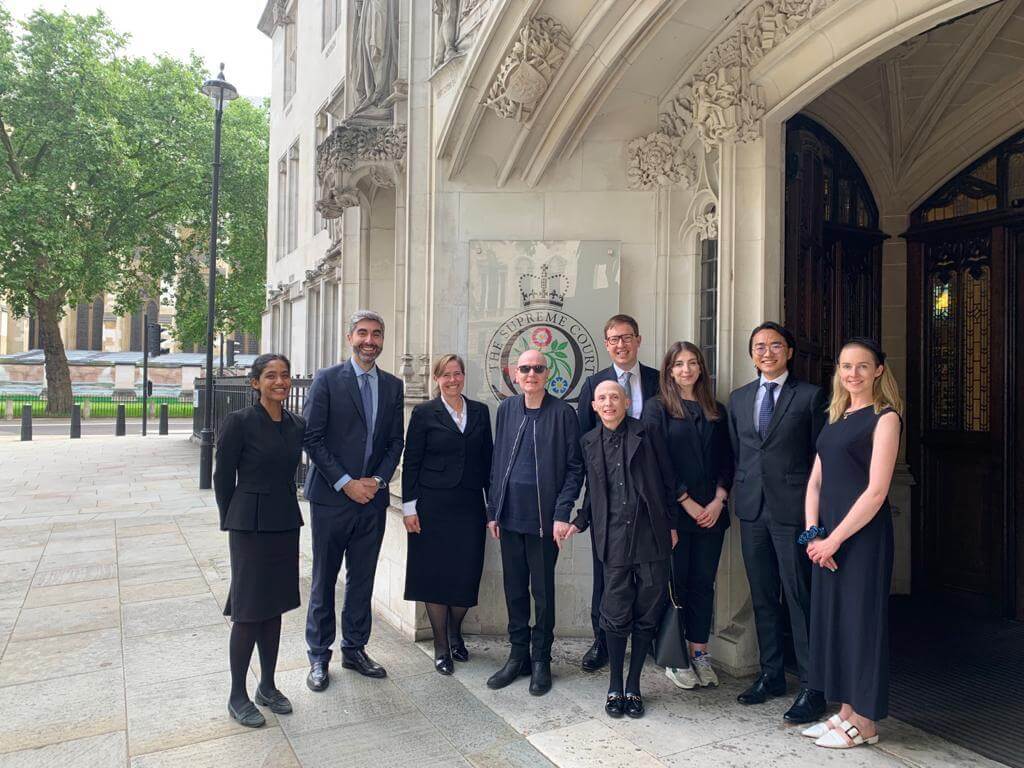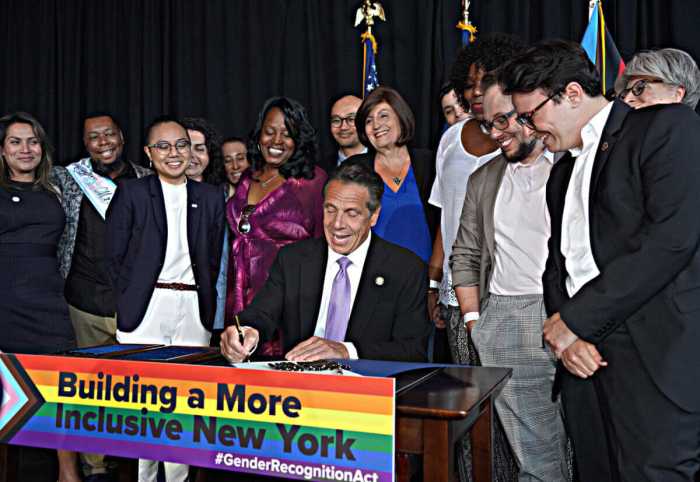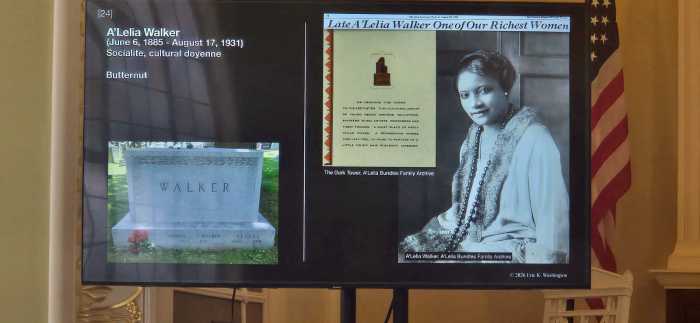A unanimous five-judge bench of the Supreme Court of the United Kingdom ruled on December 15 that a non-binary person is not entitled under either European Human Rights Law or the UK Human Rights Act to get a passport with an “X” gender designation.
The applicant, Christie Elan-Cane, identifies as “non-gendered” and has become a “campaigner” for “the legal and social recognition of a non-gendered category of individuals,” Lord Robert Reed wrote in his opinion. A “focal point” of their campaign is to be able to obtain a new UK passport in which their gender is shown as “X” rather than “M” or “F”.
Elan-Cane contacted the UK Passport Authority in 1995 asking whether it was possible to get a passport without declaring themselves either male or female, as was required by the application document, and was told that this was impossible. Elan-Cane then applied for and was issued a passport designating them as female. They tried again in 2005, and initiated repeated correspondence between 2010 and 2016 before filing this lawsuit, but the agency, since renamed as “Her Majesty’s Passport Office,” always had the same response.
Notably, under the UK’s Gender Recognition Act, which was passed in response to a ruling by the European Court of Human Rights holding that the European Convention on Human Rights requires the government to recognize an individual’s gender identity as a matter of “respect for private life” and non-discrimination on the basis of sex, the UK now has a formal procedure for recognizing gender transition and treating transgender people in a manner consistent with their gender identity as either male or female. However, there is still no government recognition of a non-binary gender identity.
The court’s first task was to determine what may be required under the European Convention on Human Rights, a treaty to which the UK is bound as a member of the Council of Europe, despite the Brexit vote by which it exited from the European Union. The countries that are parties to the Convention and those who are members of the Union are two overlapping sets of nations, and the UK is not the only country that is a party to the Convention but not a member of the Union.
After examining decisions by the European Court of Human Rights, the Supreme Court, in agreement with the Court of Appeal and the trial court, concluded that providing an “X” passport was not required under the Convention. This it not purely a matter of legal analysis, but involves as well keeping count of what the Convention parties are doing, because the European Court of Human Rights determines what is required under Article 8 (“respect for private and family life”) at least in part by determining what the consensus is among the Convention parties. So far, only a handful of the parties of the Council of Europe will provide an “X” passport: Denmark, Malta, and Iceland for those who identify as non-binary, and the Netherlands, Austria, and Germany for persons diagnosed as “intersex” due to ambiguous sexual characteristics present at birth.
Interestingly, several non-European countries that will issue an “X” passport — New Zealand, Australia, India, and Canada — are prominent members of the British Commonwealth of Nations, but their practice is not strictly speaking relevant to determining a consensus of Council of Europe parties. Other countries that will issue an “X” passport are Nepal and Pakistan (in the case of transgender people).
In the United States, the Biden Administration has initiated a process of modifying the State Department’s passport software, and has actually issued an individually produced “X” passport as part of a settlement of the Zzyym v. Kerry lawsuit that has been reported several times in recent years in Gay City News.
Within the Council of Europe, however, there is no consensus, because 41 parties to the Convention do not currently issue “X” passports. And even though the Supreme Court acknowledges that theoretically the right to be identified as non-binary would come within the ambit of “respect for private life” of the individual, the absence of a consensus means that the European Court of Human Rights, which has not yet ruled on this question, is unlikely to find that it is required of adherents to the Convention.
There is an interesting parallel process on the marriage equality question. Many countries in Europe now allow same-sex couples to marry, but not a majority of the Convention parties. The European Court has ruled that Convention parties must provide some form of legal recognition for same-sex couples, and has issued several decisions tracing the reach of that obligation when it comes to one country recognizing same-sex partnerships involving international couples and attendant parenting issues, but it has been unwilling to take the final step of holding that equal marriage rights are necessary in the absence of a consensus, which effectively leaves it up to each member country to determine how they will comply.
Because of the diversity of cultural, religious, and ethnic customs and practices among the parties, the court has adopted a “margin of appreciation” doctrine to stake out the scope of acceptable policies for countries to have, and leaves it to internal domestic politics to make the policy decisions. Thus, when the court ruled on gender recognition, it was up to the UK government to determine how to effectuate that requirement, resulting in the Gender Recognition Act, which differs in some respects from the procedures adopted in other European nations.
Having determined that the Convention doesn’t require the UK to issue “X” passports, the next question for the court was whether British human rights law requires it, and here the court bowed to the government’s expressed concerns for a cohesive approach to the issue rather than making a policy decision solely for the purpose of passports. Lord Reed pointed out that there are several different parts of the UK legal framework where various rights and privileges rely on a classification as male or female, and found legitimate the government’s concern that each presents different policy questions. He also found persuasive the government’s concerns about security complications raised by a category that would be based on the subject non-gender identity of the individual.
The court also pointed out that although Elan-Cane suggested that the present situation imposed hardship on non-binary people, they produced no specific evidence of harms they have suffered as a result of not having an “X” passport. They had no incidents to report of harassment by customs or security officials when traveling internationally and, the court observed, the actual situations in which a passport might be needed for identification purposes can frequently be met by other documents, such as drivers’ licenses and other identification documents.
Furthermore, Lord Reed refuted Elan-Cane’s argument that a prior ruling by the court’s predecessor — the Law Committee of the House of Lords — had recognized the authority of the court to make policy in an area governed by statutes. Characterizing those statements by members of the Committee as “obiter dicta” (a law Latin phrase indicating statements that are not precedential), Lord Reed insisted that the question whether to grant “X” passports was one to be made by Parliament, not by the court, and that for the court to make this decision would violate the division of powers between the legislative and judicial branch, which had been emphasized when the country decided to have a Supreme Court to replace the Law Committee of the House of Lords.
The Passport Office undertook an “internal review” of the issue of “gender marking in passports” in 2014 and issued a report, laying out policy reasons for leaving things as they are, making several of the same arguments that were rejected by US courts in the Zzyym case. The report noted that there is “no legislative provision for the recognition of individuals as non-gendered” under UK statutory law, and that there were no plans for the government to introduce a “third gender category” at that time. Wrote Lord Reed, “The norm across government was for gender to form a key part of the personal information gathered in respect of individuals,” and that it would be inappropriate for the Passport Office to adopt a policy that was not in line with the rest of the government.
After Australia decided to issue “X” passports, a Parliamentary committee recommended that the UK consider following suit, but the government responded adversely, opposing adopting a practice just for passports “in isolation from other areas of government.” The Government Equalities Office began a study process on the issue in 2017, but it ground to a halt with the COVID epidemic, although, reports the court, “In March 2021 the Government decided that work should resume, focusing on the issue of introducing gender-neutral markers in identity documents (including passports), and the potential impact of such a change on the provision of public services and on systems across government.”
In the meantime, however, the court consigned Elan-Cane and other non-binary individuals to wait for the political process to run its course, concluding: “Although the European court does not appear to have considered the issue raised in these proceedings, this court, and the courts below, have endeavored to assess whether, applying the principles established in the European case law, the Secretary of State is under an obligation, by virtue of article 8 of the Convention, considered either alone or together with article 14 [the anti-discrimination provision], to provide the appellant with an “X” passport. The conclusion is that the Convention imposes no such obligation, at least at the present time. There is no reason why that assessment of the position at the European level should not be followed at the domestic level in the application of the Human Rights Act.”



































